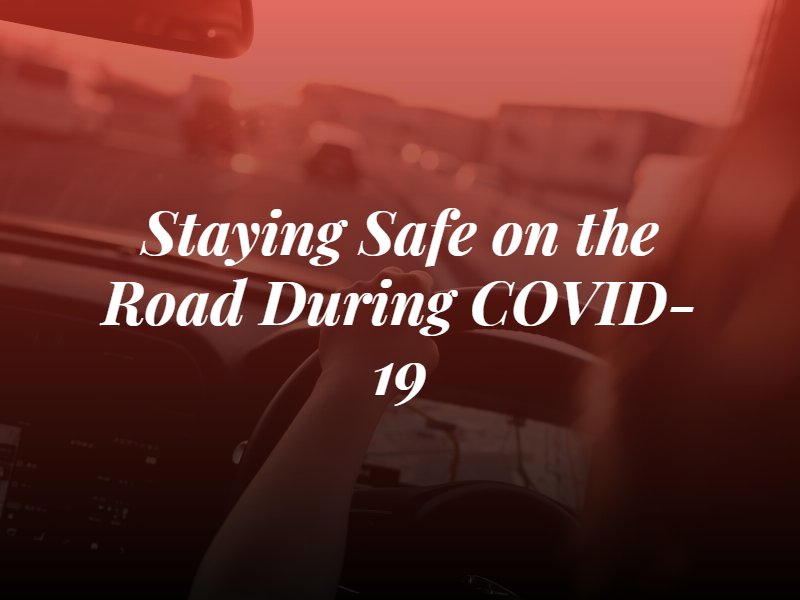How to Stay Safe on the Road in Boston During COVID-19
Published in Car Accidents on June 12, 2020
Reading Time: 3 minutes
The COVID-19/coronavirus pandemic has led to many changes in everyday life. One of the major differences citizens in Boston have noticed is a sharp decrease in traffic. Mandatory shutdowns and stay-at-home orders have taken thousands of drivers off the streets in Massachusetts. Yet, as the Massachusetts Department of Transportation reports, fatal accident rates have still increased despite a 50% drop in traffic volume.

Boston Crash Facts and Statistics During COVID-19
On March 10, 2020, Massachusetts declared a state of emergency due to COVID-19. Gov. Charlie Baker gave the Administration permission to respond to the coronavirus pandemic as it saw fit. Many actions taken since then have included orders for citizens to stay at home except when necessary to go out for essential items. These orders led to a swift drop in traffic in busy cities such as Boston. Unfortunately, it also led to an increase in reckless driving behaviors.
Although traffic volume decreased by more than 50% during the COVID-19 outbreak in Boston, the MassDOT reported that the roadway fatality rate doubled. In April 2020, 28 people lost their lives in Massachusetts traffic accidents. This was one more death than in April 2019, when traffic in Massachusetts was at full capacity – meaning the number of car accident deaths relative to traffic doubled. Hundreds of other victims in Boston suffered serious injuries in car crashes during COVID-19 lockdowns, including many bicyclists and pedestrians.
The MassDOT, law enforcement officers and safety officials believe a spike in reckless driving during COVID-19 lockdowns caused the disparity between traffic volume and fatal accidents. Some drivers are taking advantage of fewer cars on the road by speeding and drag racing. Others are using their cellphones and driving while distracted. Drunk driving, red-light running and not wearing a seat belt are other common examples of driver recklessness during the pandemic.
Safety Tips for Driving During COVID-19
Follow Massachusetts’s emergency orders during the COVID-19 outbreak. Stay home as much as possible to slow the spread of the disease. If you have to walk, bike or drive anywhere during the pandemic, be extra vigilant in terms of safety. Stay on the lookout for negligent and reckless drivers who may be taking the decreased traffic in Boston as an opportunity to speed or break other traffic laws. Obey all roadway rules and driving guidelines.
- Stick to speed limits. Do your part to keep Boston’s roads safe by always obeying speed limits, especially on rural or residential roads. City officials have reported speeding is especially a problem on the MassPike.
- Watch for pedestrians. There may be more people than usual walking and biking due to lockdown orders. Drive slowly and watch for pedestrians – especially small children.
- Look both ways. Before you pull into an intersection as a driver or cross the street as a pedestrian, look both ways for oncoming cars. Even if you have the right-of-way, check for drivers who may be breaking the rules.
- Put away distractions. Distractions such as cellphones are dangerous for motorists and pedestrians alike. Put your phone and other distractions away while walking, biking or driving in Boston.
- Wear a seat belt. Fatal accidents often involve drivers and passengers who were not wearing seat belts. Put yours on to decrease your risk of a life-threatening injury in a car accident.
If you do get into a car, bicycle or pedestrian accident in Boston during COVID-19, consult with an attorney about your right to pursue financial compensation. Massachusetts is a no-fault state except in car accident cases involving serious injuries. Whether you will seek restitution from your own insurance provider or that of the reckless driver depends on the extent of your injuries. A car accident attorney in Boston can review your case and help you file a claim with the correct insurance company. Then, your lawyer can demand maximum compensation on your behalf.
For more information, call our law office at (617)-391-9001. Or if you would prefer to email us, then please visit our contact page.
Comments are closed.










